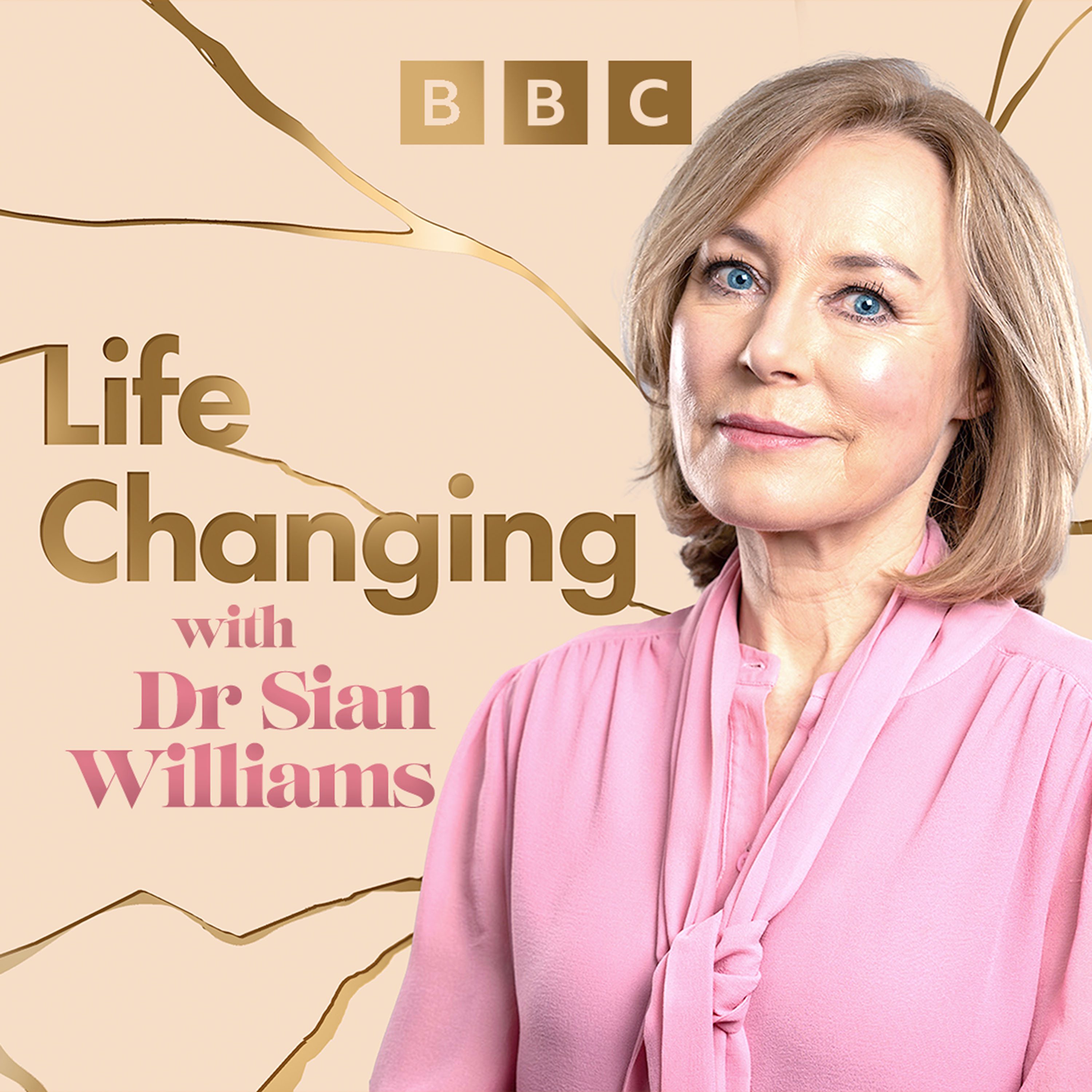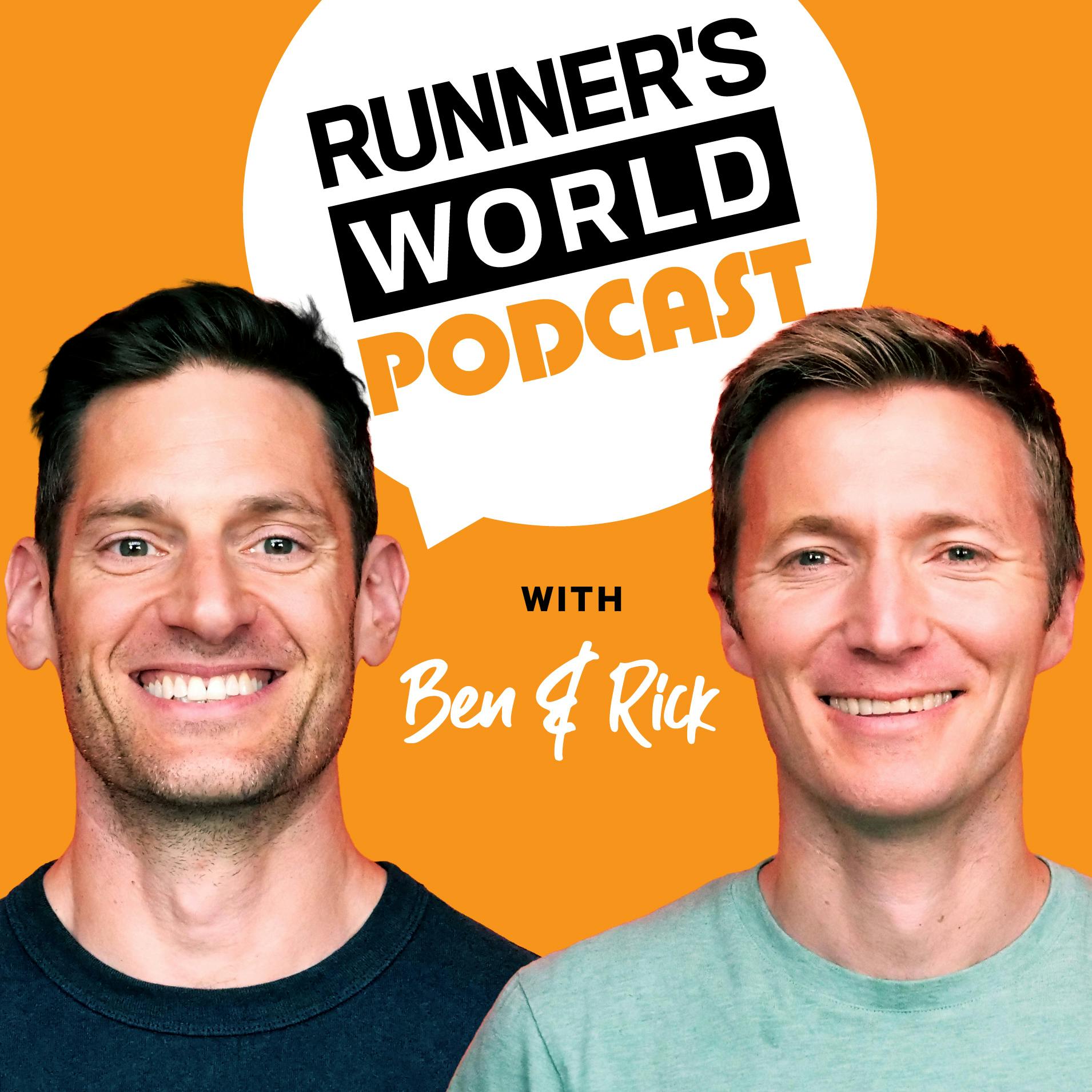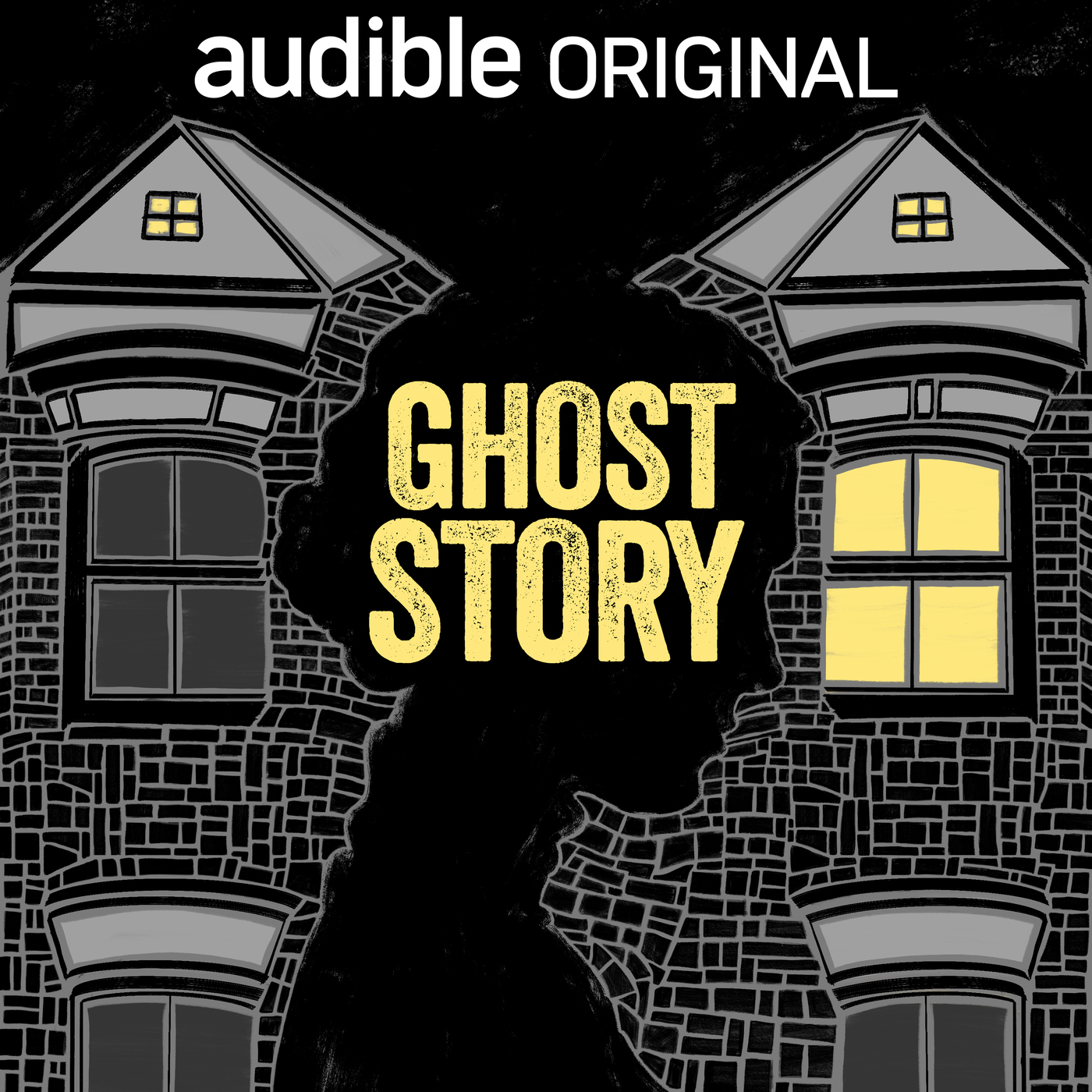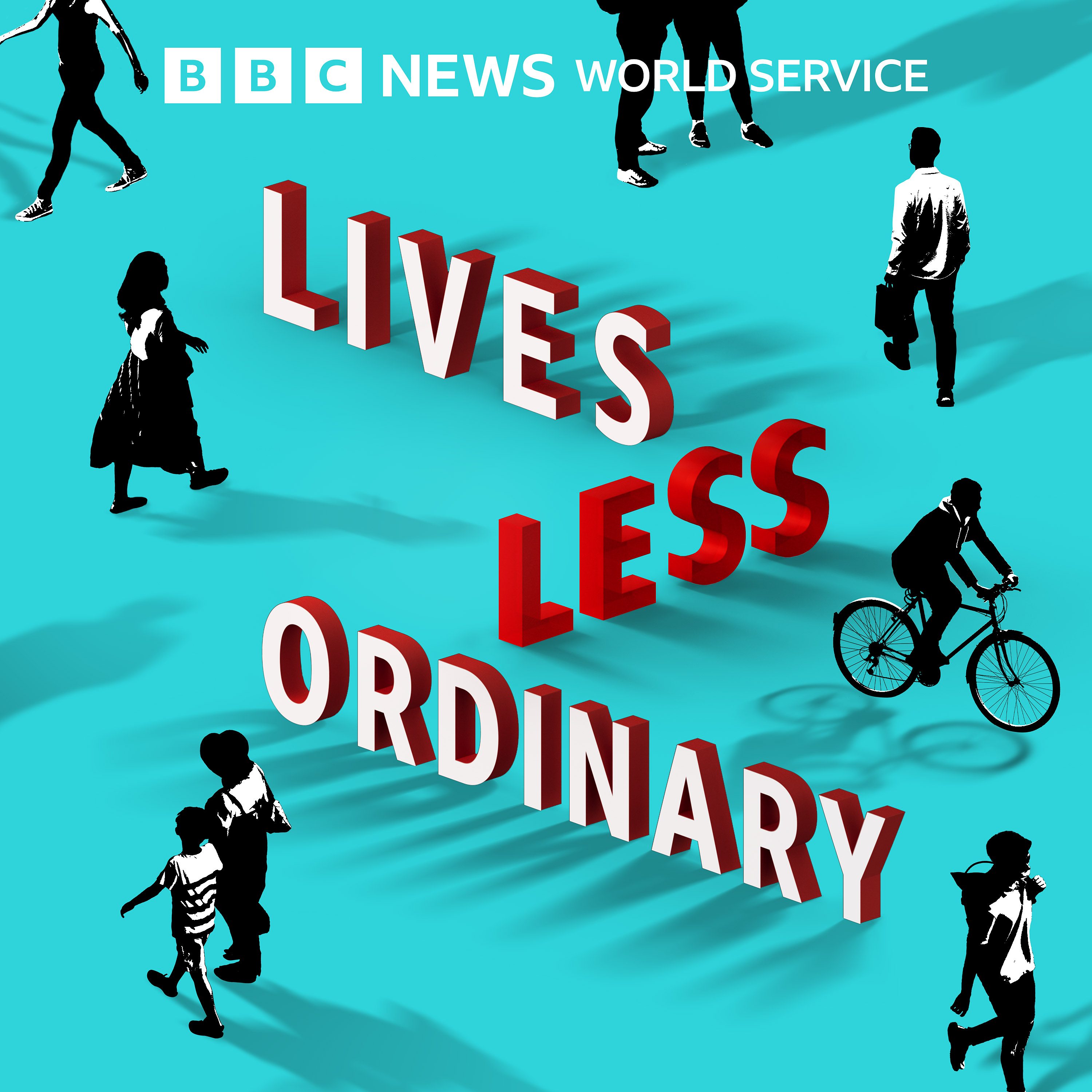
Brian's Run Pod
Welcome to Brian's Run Pod, the podcast where we lace up our running shoes and explore the exhilarating world of running. Whether you're a seasoned marathoner, a casual jogger, or just thinking about taking your first stride, this podcast is your ultimate companion on your running journey.
Join us as we dive deep into the sport of running, covering everything from training tips and race strategies to personal stories and inspiring interviews with runners from all walks of life. Whether you're looking to improve your race times, stay motivated, or simply enjoy the therapeutic rhythm of running, Brian's Run Pod has something for every runner.
Brian's Run Pod
Sleep: The Secret Weapon for Runners
Use Left/Right to seek, Home/End to jump to start or end. Hold shift to jump forward or backward.
Sleep consultant Lindsey Hanna reveals the profound impact quality sleep has on running performance, sharing her journey from corporate manager to sleep expert after personal struggles with sleep deprivation.
• Sleep is divided into non-REM and REM phases, with deep sleep being crucial for muscle repair and physical recovery
• Quality of sleep matters more than quantity - consistent sleep cycles are more beneficial than longer, fragmented sleep
• Cognitive Behavioral Therapy for Insomnia (CBTI) is now the gold standard for treating sleep issues, more effective than medication
• Sleep trackers can cause anxiety and aren't entirely accurate - focus more on how you feel than the data
• Sleep interruptions like nighttime bathroom breaks typically happen between sleep cycles
• Monday mornings are the most common time for heart attacks, partly due to weekend disruptions in sleep patterns
• Our brains periodically check our sleep environment for safety, an evolutionary mechanism from our ancestors
Join us next week for part two as we continue exploring how mastering your sleep routine can unlock new levels of athletic achievement.
Brian's Run Pod has become interactive with the audience. If you look at the top of the Episode description tap on "Send us a Text Message". You can tell me what you think of the episode or alternatively what you would like covered. If your lucky I might even read them out on the podcast.
Instagram
So you're thinking about running, but not sure how to take the first step. My name is Brian Patterson and I'm here to another episode of brian's run pod. The show will be diving into all things running, training, the lifestyle that keeps us moving. I'm your host, brian patterson, and today we've got a really, really special treat for you. Ever wondered how catching the Zeds can actually boost your running performance? Well, you're in for a treat. Joining us today is Lindsay Hanna, a certified sleep consultant and the founder of your Sleep Clinic. Lindsay specializes in helping individuals conquer sleep challenges and she's here to shed light on the profound impact of quality sleep can have on our running and on our lives. So lace up your running shoes, grab your favourite recovery drink. Let's dive into the world of sleep and running with Lindsay Hanna and, trust me, you just won't want to miss this one. So welcome Lindsay to the show.
Speaker 2:So welcome Lindsay to the show hey, brian, thanks so much.
Speaker 1:Very good, very good. Everyone gets that. So I know this is quite different to our normal kind of podcast where I interview sort of runners, coaches, that kind of thing. But I'm always really interested in how other elements of life have kind of like an impact on our, you know, running, fitness, general well-being, because I think it's all very much linked and how sleep is very much linked. But first of all, I just wanted to find out as to how you found yourself doing what you're doing now. So you know from university.
Speaker 2:Well, I have a very squiggly line in terms of how I became a sleep consultant. So I have a degree in law.
Speaker 1:Oh right.
Speaker 2:Okay, a sleep consultant. So, um, I have a degree in law, oh right. Okay, I left university with a degree in law and went to work, um, for a really well-known telecommunications company as an operations manager all right so, um, I was in the corporate world. I was managing contact centers with a couple of hundred people across different continents and really interesting, really diverse work.
Speaker 1:Yeah.
Speaker 2:And then came along my first child, right, who didn't sleep.
Speaker 1:Oh, I see.
Speaker 2:I just assumed children slept when they got tired, they ate when they got tired, they ate when they got tired. And I didn't realize that this tiny little thing needed me to understand and interpret her cues and know all of these different things about sleep. And I didn't realize that the longer you kept a baby awake, the worse. It was for trying to settle them and get them to sleep, so I didn't understand any of that. It was for trying to settle them and get them to sleep, so I didn't understand any of that. So, fast forward, four years, she went to school and suddenly began sleeping at night, which was great, but it was four years in um.
Speaker 2:Sleep deprivation was cruel, it was horrible. It impacted everything. It impacted work, it impacted relationships. It impacted absolutely everything my weight I gained weight. My hair changed Absolutely everything in my physical appearance, my mental well-being, everything just changed in those four short but rather long years. I became pregnant with my second child and I started to suffer from insomnia myself. And it was through pregnancy that I started to look at and understand a little bit more about sleep and adult sleep and looked more into children's sleep, and my main priority whenever my youngest daughter came along was to make her sleep, which I thought would cure my sleep problems and help me sleep a little bit better, and so I had completed my first certification in infant and children's sleep whilst pregnant and just after she was born, and I set up a children's sleep consultancy.
Speaker 1:Right.
Speaker 2:But it didn't solve my sleep issues or my sleep problems.
Speaker 2:Interesting In fact my sleep problems heightened because I had all of this anxiety, postnatal anxiety, you know. I could stay awake quite happily all night long, and as long as I got two or three hours I was absolutely happy, which I knew wasn't ideal, wasn't great, wasn't healthy. So then I had to start to look at my own sleep because I'd hurtly perfected, and so then I had no excuse for the way that things were with my own sleep. So then I started to investigate and understand a little bit more about adult sleep and became completely enthralled into that and began a series of qualifications in adult sleep. Then, um, really understanding how adult sleep impacts you know, absolutely every part of our lives. And yeah, and then I just the decision came where I now had this immense knowledge of sleep and everything to do with sleep and had really fell out of love with the corporate world and decided that I was going to dip my toe into adult sleep consultancy using the qualifications that I had gained. And here we are.
Speaker 1:Yeah, so I mean it was interesting that you could. It wasn't like you had a background in psychology or nothing like that, or even a degree in psychology. You could go straight into certifying yourself for sleep.
Speaker 2:Absolutely the sleep industry at this moment in time. Parts of it are regulated, parts of it aren't, but in terms of what I do, so even though I work with CBT therapies for insomnia, it's something that you can learn and there are really only two places in the UK that do it, that teach it and allow you to become qualified, and both places you are actually taught by the founders of CBTI.
Speaker 1:Right. What does that stand for? It's?
Speaker 2:really lovely to know that.
Speaker 1:What does it stand for CBTI?
Speaker 2:Cognitive Behavioral Therapy for Insomnia.
Speaker 1:Ah, right, okay, and so is this a case thing, or was it different?
Speaker 2:from the States. Is this a case thing? Or was it different from the States? It's a worldwide thing. Cbt for insomnia is now the gold standard. It's the go-to treatment and the go-to therapy for insomnia and long-term and perpetuated sleep issues. So it's found to be more effective in the long run than sleeping tablets, um any medication like that, um.
Speaker 1:So it is the gold standard now in uh sleep therapy yeah, so before we can sort of get into, you know, kind of what are the benefits and and also what are the kind of the sleep challenges, what? Because I, I have an app. Well, I have a watch which tracks my sleep and whatever, whether how good it is or whatever, but it seems to, seems to, you know, I have a look at the stats every so often but what can we kind of, in basic terms, to formed as to what are the different stages of sleep?
Speaker 2:Yeah, so I actually have a bit of a love-hate relationship with watches and trackers. I thought, so I thought so, First and foremost, they're not particularly accurate and they cause a lot of anxiety to people. If you're looking regularly and you've said you look at it occasionally to see how your sleep's going If you're somebody who has issues with your sleep or you struggle with your sleep, you're going to be fixated on the device that tracks your sleep.
Speaker 2:It's not completely accurate and without understanding the data behind it, you can begin to think I'm only having a very short amount or a short duration of deep sleep per night. That's okay. You do only spend a short amount of time in deep sleep throughout the night. There are different stages to sleep, as you said. So it's divided into two categories. So it's divided into non-REM sleep and REM sleep, so rapid eye movement sleep, right, so rapid, um, so sorry.
Speaker 2:Nrem sleep is, um, your light sleep. So you it's broken into sort of um three stages. So you've got your, your light sleep, and it's basically where you're transitioning from your wakefulness into sleepiness and grogginess, where you got into bed and you're just in that dozing stage, yeah, and you go in then to your stage two sleep and your heart rate begins to slow, your body temperature begins to cool down and this is actually where you spend most of your night in stage two, nrem sleep. And then you've got your deep sleep or your slow wave sleep, and that's your really restorative phase. That's where your listeners um want to to be sort of capitalizing on this deep sleep.
Speaker 2:So that's where you do muscle repair, um, you know, if you've got a cut or an injury or a bruise. That's where your body repairs all of that. So it's your physical repair and physical development. And then you've got your final stage of REM sleep, which is your brain's in really high, high activity at this stage. So there's lots and lots of you know rapid eye movement. So both the NREM and the REM sleep are really essential for performance.
Speaker 1:Right, okay, is that when you're basically dreaming the non-REM?
Speaker 2:Yeah, you can dream there.
Speaker 1:Or is dreaming a very separate thing?
Speaker 2:Dreaming is a very separate thing when your brain is doing all of that sort of fluctuation and there's lots of things happening. A lot of that's in and around your emotional regulation, your memory consolidation. So you're clearing out all of the stores. If you can imagine lots of storage boxes in your brain, and during the day you will look at your car door and see that it's red. You'll look at your front door and see that it's yellow. You'll see that you have to put your hand and push hard on the handle and your clutch is a certain way up. You don't need to know all of those things because they're already embedded. You a certain way up. You don't need to know all of those things because they're already embedded. You know what to do, you know how to breathe. So every day your brain needs to clear out those boxes that it doesn't need. It doesn't need to consolidate those memories anymore and it needs to get rid of that junk. If it doesn't.
Speaker 2:Number one, there's nowhere to store the new material that's coming in, or the new, the new memories that you need to make or the new things that you need to remember. But it also interferes with um, how signals are passed in the brain, because the brain becomes, um, all clogged up and clunked and there's a correlation and a relationship between the amount of sleep you get that helps your brain clear out and flush out all of the things that it doesn't need. So getting enough sleep and, um, you know, neurological disorders like alzheimer's. So there's a direct correlation there, um, and it's a bit like the, the chicken, the egg which comes first. Does alzheimer's cause um trouble sleeping or does trouble sleeping cause Alzheimer's? So there's that direct link there. But yes, in that really active part of your sleep, that's when your brain is doing, or your body's doing, all of that emotional regulation and you're regulating all of your hormones and your endocrine system as well.
Speaker 1:Right, Okay, so from what I'm getting is that kind of deep sleep. Part of you sleeping is kind of very much in the middle and you know what's booking ending. It is the non-REM, and what was it eREM? What was it so REM?
Speaker 2:and REM. Yeah what was it e-rem? What was it the? Uh, so rem and rem. Yeah, if you think that the deep sleep is probably where you spend um the the least amount of your time throughout the night.
Speaker 2:So if you can imagine um that each of your sleep cycles is about 90 minutes long, give or take and everybody's sleep cycles will be slightly different yeah and if you imagine that, um, it's like coming down some flights of stairs, so you start off in your stage one, um, you move into your stage two, um, so stage one's only a tiny little bit, and then you move into stage two, and then you move into your deep sleep and, um, yeah, your deep sleep is, it's quite low.
Speaker 2:We don't spend a huge amount of time each cycle there yeah and then we come back up the steps again to go back into the next sleep cycle. So that's where we spend quite a lot of our time in stage two, because we hit there sort of more times in a sleep cycle, you know, or we spend more time there throughout the night than we do in deep sleep. But that's why it's so essential that we get good quality sleep and people think we need to be in bed for eight hours a night to get that quality sleep. We would much rather see somebody complete cycles of sleep consistently and get, say, six, six and a half hours of sleep per night in a consistent fashion where they're moving through their sleep cycles and they're going through each of the stages, rather than being in bed for eight hours saying yeah, or 10 hours.
Speaker 2:I went to bed at you know 10 o'clock and I woke at eight. The next morning. I spent 10 hours in bed to only spend three or four of them asleep, and even at that, you know you were, you were awake so much that you never got to do your full cycles the whole way through the night. And even at that you, you know you were, you were awake so much that you never got to do your full cycles the whole way through the night and actually get that consolidated sleep, yeah, um. So what we would really be wanting for um your listeners is that they they got a solid amount of consecutive sleep, rather than a fragmented, longer duration of time in bed yeah, I mean for someone saying is I think Margaret Thatcher survived on five hours sleep a night, or something like that.
Speaker 1:So I don't know whether it was because it was this quality, as you said, it was a very quality sleep, you know it could have been, so you know.
Speaker 2:It could well be.
Speaker 2:I wouldn't like to rely on just five hours of sleep a night, but five hours of sleep a night, but five hours of consecutive sleep is probably better than, um, you know, a very, very broken sleep. Um, if you think of it that, uh, there is research, and I can't remember who completed the research now, but I did read it and it's a fun fact that if you have had broken sleep where you have only spent a short amount of time three or four hours in consecutive sleep, uh, throughout the night, and that's your longest duration of sleep your reaction times are as slow as if you had taken enough alcohol to feel a breathalyzer, so it really slows your reactions down the next day yeah, that's understandable.
Speaker 1:Yeah, do you on that about the, the deep sleep. If you are getting over a cold or you I don't know, I don't know not an injury or you're not well, will that be elongated? You know that deep sleep for that. You know the body trying to not necessarily.
Speaker 2:No, not necessarily. Just like you can't repay a sleep debt, and in the same fashion, you won't spend longer in deep sleep. If you're ill, for example, or recovering from something, you might sleep more often, like take a nap during the day, because your body will be tired? Um, because it's it's busy repairing everything, so it's it's getting more tired because it's working harder.
Speaker 1:yeah, but you won't spend longer per sleep cycle in deep sleep yeah, now, you just touched on something there which is, uh, sleep debt, which I know sort of comes up on these apps. But um, it's something I've noticed myself is that at the beginning of the week, on the monday, I am very tired, I'm quite tired, even though maybe I've had a restful weekend and usually I get up at you know half six to go to work for 7, 30, you know, to get there for eight, whatever, but that monday by by lunchtime it's not a very you know, it's sort of a taxing job. It's very sort of data entry, that kind of thing. But if I was thinking, let's say, you know I wanted to go for a run Monday is just it's not happening because I'm just really tired, do you find that? And I found that as the week progress, you kind of reclaim your sleep, you know you, you're a little bit more awake. Is that, is that what you found? Or with some of your clients, or is that is? Does that ring? Probably?
Speaker 2:more. It's more lifestyle than anything. So at the weekends you probably during the week you probably compensate for yourself and you think I'll not watch that second episode of whatever on netflix.
Speaker 2:I'm gonna go to bed at a reasonable time, whereas at the weekend you're gonna think I'm gonna sit up and watch it. I might have that second or third glass of wine, because it's a saturday night, you know I'm going to enjoy it. So alcohol you know you don't sleep as well Once you've drunk alcohol. You don't have the same quality of sleep because you're more rouseful and you're waking up more frequently through the night. Believe it or not, you just don't get that same quality of sleep.
Speaker 2:So it's probably lifestyle factors, but the most common time for people to have a heart attack is on a Monday morning. Oh my gosh, wow, um. Our bodies produce cortisol um to help us get ready to wake up. So we start to produce cortisol in and around, uh, sort of three, four o'clock in the morning to help us prepare and get ready for waking up in the morning time.
Speaker 1:Yes.
Speaker 2:And so we've got all that cortisol. And then you've got this um, you know you're getting up for work on the Monday or jumping out of bed. Got this um, you know you're getting up for work on the monday or jumping out of bed, um, so you've that, coupled maybe with a busy weekend, which all adds into the fact that you know, cortisol being your stress hormone, there are, on average it's the most common time to take a heart attack is a monday morning, just before work.
Speaker 1:All right so yeah so what's the with the answer to have to make sure that you either get to bed early on the Sunday or sort of de-stress on the weekend.
Speaker 2:And I know Mel Robbins has this morning routine that is really popular on social media at the moment and it's the it thing right now and I love lots of things about it. You know, I love that she tells you to prepare the night before for morning time so that you've got that done. You're not thinking about that in the morning, it's not a consideration. You know, getting outside and stalling that first cup of coffee, all of those things you know she tells you to do, are all really great for sleep, but the one thing she says is that, um, as soon as your alarm goes off in the morning, start to count, you know, backwards from five, five, four, three, two, one, and then jump out of bed okay and that's.
Speaker 2:that's great for somebody who, um, you you know, has a really good relationship with sleep. But, um, if you're somebody who maybe has had a really bad night's sleep the night before whether it is because of lifestyle factors or it is more perpetuated and you are dealing with something like insomnia, um, then you're not giving your body time to come out of that sleepy state and actually wake up. So I would say for those Monday morning people, people who maybe have not had a great night's sleep on the Sunday night before or any night before, just take a moment, maybe practice a bit of deep breathing, you know, set a time in your head five, seven, eight minutes time when you're going to get up, and you're going to get up slowly and sit on the end of the bed and maybe practice your deep breathing exercises, or yeah you know, plan in your head what you're going to do, rather than just jumping straight out of bed after five seconds men of a certain age tend to go to the toilet quite a lot during the night.
Speaker 1:It's kind of an interrupted sleep, you know, and then they'll like myself. So does that have a factor? Because I know, okay, you're, you know you're getting up, um, uh, and then you're kind of interrupting the sleep and then you're going back and then you're having to restart the cycle again. Is, is that? Is that a significant factor or not?
Speaker 2:it's likely that you're actually um. You only realize you need the bathroom when you're in.
Speaker 2:You're moving between a sleep cycle so when we fall asleep at night, when we get into bed, um, and we lay down to go to sleep, our, our brains check our sleep environment. We want to make sure that it's safe for us to go to sleep, yeah, so we check how dark it is, we check where we are, what position we're in, um, who's in the room beside us, what's, you know what signs there are, etc. And um, when sort of up until around midnight, maybe one or two o'clock, we sleep quite deeply and soundly. After that our sleep cycles start to bring us more and more into this, more wakefulness. So it's likely that you sleep quite well up until a certain point in time. You know one, two o'clock in the morning, and then you begin that you maybe wake up every hour and a half or every three hours for the bathroom, and that's because you're moving through a sleep cycle and your brain has actually come out of sleep to check the sleep environment again, to make sure that the sleep environment is the same as when you went to sleep, and that's when you're most likely to realize that somebody has stolen the covers from you or, um, you know that a car alarm that maybe has been going off for the last half hour. You're only hearing it for the first time now.
Speaker 2:Yeah, because your brain becomes more aware, because it's checking your sleep environment and it wants everything to be consistent. If there's a change, it triggers a response in your brain that says there's some kind of danger because, um, we went to sleep and, uh, were really cozy and warm. Now we've no blankets, we're cold, so there's some danger. Something in our sleep environment is different. So when you wake for the bathroom, you're waking in, you know, in a stage between sleep cycles, so it's not going to have that huge detriment on your sleep. However, the problem arises if you have insomnia or have any kind of problem with sleep. You're going to go to the bathroom, you're going to come back to bed and then you're going to be staring at the ceiling or going in a vicious cycle of yeah did I feed the cat?
Speaker 2:did I leave the bins out? Is tomorrow bin day? Um, all of these thoughts that are going through your head. And for anyone else who doesn't suffer with you know any sleep issues, they'll be like I'll sort it out in the morning. The cat's not going to die. The bins will be put out in the morning before I go to work. It's fine.
Speaker 2:You know, it's okay For somebody who suffers with insomnia. They get up to go to the bathroom. They have these thoughts, might even be thoughts like it's two o'clock, I'm not going to get back to sleep now, and that means I'm up for work at half past six. So you know I'm missing out in four and a half hours sleep. And already they've started to have a negative impact on their sleep and they've started to hinder their, their ability to get back to sleep again, because they've started to worry about going back to sleep. You know they believe that they'll not get back to sleep again, yeah, and so they worry then. Oh, I'm going to be tired and work tomorrow. I've got this presentation that I need to do. I'm not going to be able to do it because I'm so tired. I'm going to be snappy.
Speaker 2:And they start to facilitate these fears in their own head, and then their brain starts to, you know, produce the stress hormone, cortisol. And then cortisol, as we know, is our alert hormone, so it will keep us nice and alert and it will trigger a whole other range of hormones. And so you're in a cycle then, of where, if you don't suffer from sleep issues or you don't suffer from insomnia, you getting up to go to the bathroom through the night is fine. If you're somebody who suffers from insomnia or any kind of sleep issues, it can trigger a whole other response. That's going to mean actually you are awake from 2am.
Speaker 1:I mean, you just touched on there something about the psychology of it. It's very prime I'm trying to think of the word so primeval sort of thing, very basic, you know, is very much down to you know us as human beings, in terms of you know, to be aware of any danger of the environment around us. Is that really the sort of the cornerstone, the foundation of it, that's?
Speaker 2:exactly where it came from. Um, you know, when I explain that to people, I always use the analogy that we didn't always live in nice, safe homes yes, um you know we probably slept behind a bush or against a tree and you know if there was a change, or in a cave somewhere.
Speaker 2:So if there was a change to our sleep environment, it could mean eminent danger. And that's for that reason, you know, human beings are, are heard, we, we live, we we work in herds, or we live in herds, basically. And there are night owls and you know there are morning larks, and it's for that reason as well you have the night owls because they'll quite happily sit awake into the night and be quite content to sit up until midnight or after it, and then you've got the morning larks and they're quite happy to be awake from, you know, six o'clock in the morning and up and busy getting everything ready for the day. So as a, as a race, we um, or you know we need to have those different types of sleepers, um, but yes, the actual um reason behind why we check our sleep environment is very you know.
Speaker 2:we're going right back to our existence, where we needed to check where we fell asleep and if there were any dangers, there needed to be a danger response in our brain that said wake up, there's something wrong.
Speaker 1:Yeah, I think. Well, aren't we the only animals that have a kind of a conscious conscience? Is that right, or something like that?
Speaker 2:Uh, we were one of the, the only animals we're. We're one of the animals that sleep, um, you know, a long period of time which equates to our life expectancy, um, and if you look at other ones, you know that are quite slow and take naps throughout the day and sleep a lot. You know they have quite long life expectancies as well, whereas the ones that are buzzing about all the time and hardly ever rest. They have shorter life expectancies.
Speaker 1:Yeah, I think there's a Bon Jovi line sleep when I'm dead, or something like that.
Speaker 2:You'll get there quicker if you don't.
Speaker 1:I'm sure you'll agree with me that there is so much to unpack. Who'd have thought that sleep could be so complex? And I can't help feeling we've only scratched the surface. In this enlightening podcast episode, we delved into the critical, yet often underestimated, role of sleep in enhancing running performance. Sleep consultant Lindsay Hanna shared her compelling journey from a corporate manager to a sleep expert, sparked by her own struggles with sleep deprivation following her birth of her first child. The personal battle led her to explore sleep science, deeply accumulating in a career dedicated to helping others through cognitive behavioral therapy for insomnia.
Speaker 1:We uncovered the fascinating science of sleep cycles, highlighting the importance of sleep quality over mere quantity, the vital stages of sleep, from light sleep, deep restorative phases, crucial for muscle repair, to REM sleep, essential for emotional regulation and memory consolidation. She emphasized that consistently completing full sleep cycles is more beneficial than just spending more time in bed with interrupted sleep. The discussion also touched on the limitations of sleep trackers, the challenges of Monday mornings and the evolutionary diversity of sleep preferences. The practical advice was shared for runners aiming to optimize recovery, boost performance and create balance in their training through improved sleep habits. Don't miss part two next week and where we will continue to explore how mastering your sleep routine can unlock new levels of athletic achievement.
Podcasts we love
Check out these other fine podcasts recommended by us, not an algorithm.

Life Changing
BBC Radio 4
Tech Life
BBC World Service
Runner's World Podcast
Runner's World UK
Buzzcast
Buzzsprout
Newscast
BBC News
Understand
BBC Radio 4
Cyber Hack
BBC World Service
Ghost Story
Audible| Pineapple Street StudiosDiz Runs Radio: Running, Life, & Everything In Between
Join Denny Krahe, AKA Diz, as he talks with a variety of runners about running, life, and everything in between.
Uncharted with Hannah Fry
BBC Radio 4
The Global Story
BBC World Service
The Coming Storm
BBC Radio 4
Lives Less Ordinary
BBC World Service
Do Epic Shit Today Podcast
Hannah Mulhern
The Rest Is History
Goalhanger
